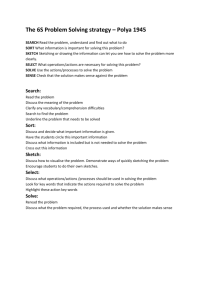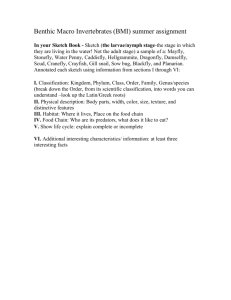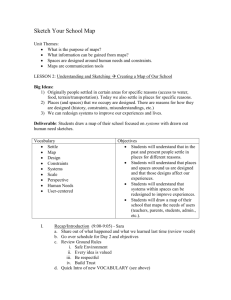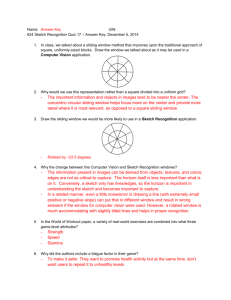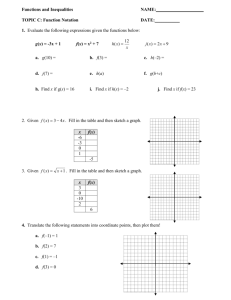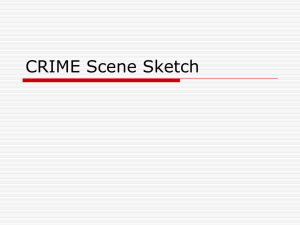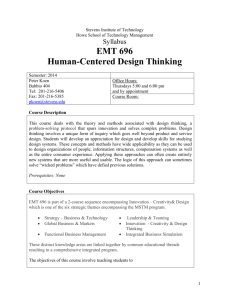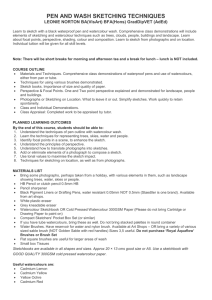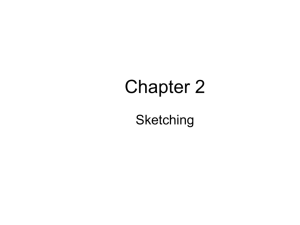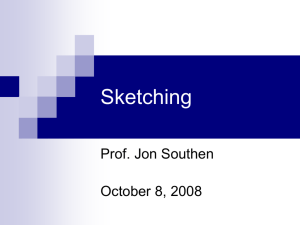Activity 1.3 Concept Sketching Introduction
advertisement
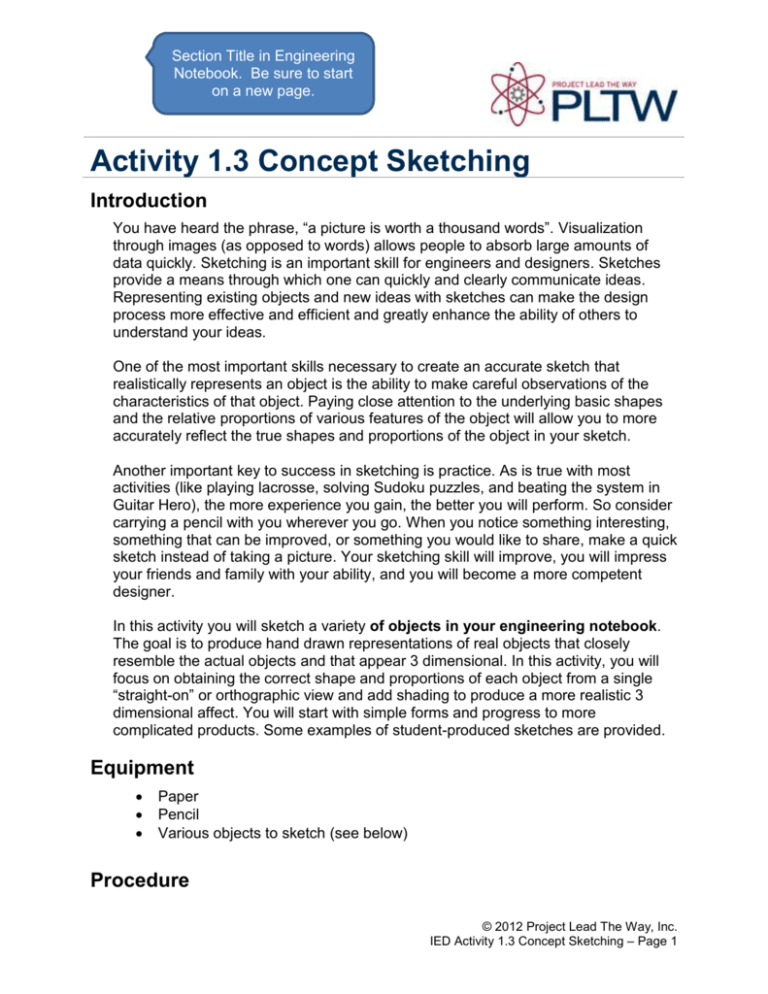
Section Title in Engineering Notebook. Be sure to start on a new page. Activity 1.3 Concept Sketching Introduction You have heard the phrase, “a picture is worth a thousand words”. Visualization through images (as opposed to words) allows people to absorb large amounts of data quickly. Sketching is an important skill for engineers and designers. Sketches provide a means through which one can quickly and clearly communicate ideas. Representing existing objects and new ideas with sketches can make the design process more effective and efficient and greatly enhance the ability of others to understand your ideas. One of the most important skills necessary to create an accurate sketch that realistically represents an object is the ability to make careful observations of the characteristics of that object. Paying close attention to the underlying basic shapes and the relative proportions of various features of the object will allow you to more accurately reflect the true shapes and proportions of the object in your sketch. Another important key to success in sketching is practice. As is true with most activities (like playing lacrosse, solving Sudoku puzzles, and beating the system in Guitar Hero), the more experience you gain, the better you will perform. So consider carrying a pencil with you wherever you go. When you notice something interesting, something that can be improved, or something you would like to share, make a quick sketch instead of taking a picture. Your sketching skill will improve, you will impress your friends and family with your ability, and you will become a more competent designer. In this activity you will sketch a variety of objects in your engineering notebook. The goal is to produce hand drawn representations of real objects that closely resemble the actual objects and that appear 3 dimensional. In this activity, you will focus on obtaining the correct shape and proportions of each object from a single “straight-on” or orthographic view and add shading to produce a more realistic 3 dimensional affect. You will start with simple forms and progress to more complicated products. Some examples of student-produced sketches are provided. Equipment Paper Pencil Various objects to sketch (see below) Procedure © 2012 Project Lead The Way, Inc. IED Activity 1.3 Concept Sketching – Page 1 Create the following sketches in your engineering notebook as directed by your instructor. A front view refers to the view that typically shows the longest dimension and the most distinctive shape. For instance, in this context, the “front” view of a vehicle would actually be one of the side views (driver’s side or passenger side). Concentrate on boxing out the correct size and shape of the object and then refining the sketch based on careful observation. Insert a photographic image of the object represented adjacent to each sketch. Remember to title, initial, and date all sketches and inserted photographs. 1. Sketch a “front” view of at least two of the following objects. Highlighter, Sharpie, pen, or pencil Toothbrush Clothes pin Scissors Flash drive Coffee cup Glue bottle Flashlight Beverage can or bottle Other instructor-approved object 2. Sketch a “front” view of at least two of the following objects. Computer mouse Tape dispenser Stapler Contoured speaker Monitor Surge protector Cell phone Other instructor-approved object 3. Sketch a “front” view of a model vehicle. © 2012 Project Lead The Way, Inc. IED Activity 1.3 Concept Sketching – Page 2 4. Sketch a “front” view of two objects at home. Some suggestions follow. Spoon, fork, or knife Remote control device Cleaning product bottle Can opener Corkscrew Coffee maker Sink faucet Lamp Computer desk Chair Etc. Conclusion (3+ Complete sentence answers for each question in your engineering notebook) 1. Explain the concept of proportion. How does the concept of proportion relate to creating a realistic sketch? 2. Why would the ability to create realistic sketches make a person a more competent designer? 3. Give an example of a visual or graphic representation of information that has more impact than an explanation of the information in text. 4. In your opinion, what is the most important thing to know/do in order to create a realistic sketch of an object? (Turn in your answers to the above questions into the turn in folder. Label it YourName1-3ConceptSketching) © 2012 Project Lead The Way, Inc. IED Activity 1.3 Concept Sketching – Page 3
